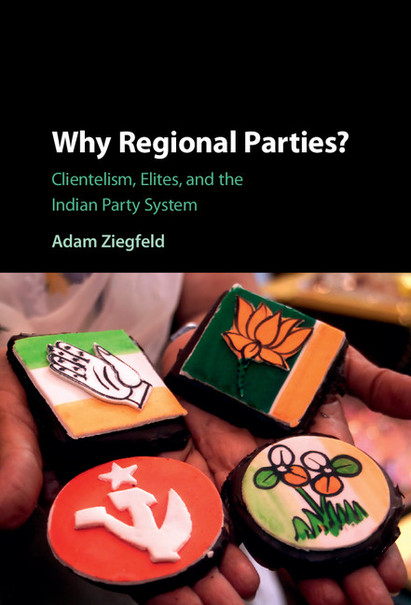Why Regional Parties? Clientelism, Elites, and the Indian Party SystemWhy do regional political parties—parties that win electoral support from only a small part of a country—thrive in some places and at some times, but not others? Regional political parties wield considerable influence in many of the world’s democracies, ranging from Belgium and Canada to Ethiopia and Pakistan. Regional parties are perhaps nowhere more prominent or persistent fixtures in politics than in India, the world’s largest democracy.
Why Regional Parties? explains the emergence and success of regional political parties in India. The book first advances a general argument about party systems under conditions of clientelism—the individualized and discretionary allocation of goods, services, and state capacity. Under clientelism, voters are relatively indifferent to the type of party for which they vote, so long as the party provides them with clientelistic benefit. Consequently, elites determine whether the parties to which they belong—and which win votes through clientelistic means—are regional parties or national parties. Thus, in a clientelistic democracy, even though voters determine which parties are successful by casting their ballots for one party or another, elites determine to which type of party those successful parties belong. Thus, when trying to understand party systems in clientelistic democracies, one must focus on the preferences and calculations of elites, particularly as they consider how to further their political careers. |
The book then applies this general argument to the question of regional parties in India, explaining
- Why regional parties in India are more successful than in most other countries in the world,
- Why India's regional parties became more successful in the 1990s, and
- Why regional parties are more successful in some Indian states than in others.
This study fills important gaps both in the literature on Indian politics and the comparative study of party systems. One the one hand, this book is the first comprehensive account of why, when, and where regional parties are electorally successful in India. On the other hand, it also situates regional parties in a broader theoretical framework for understanding party systems that is applicable to a broad class of democracies, especially in the developing world.

